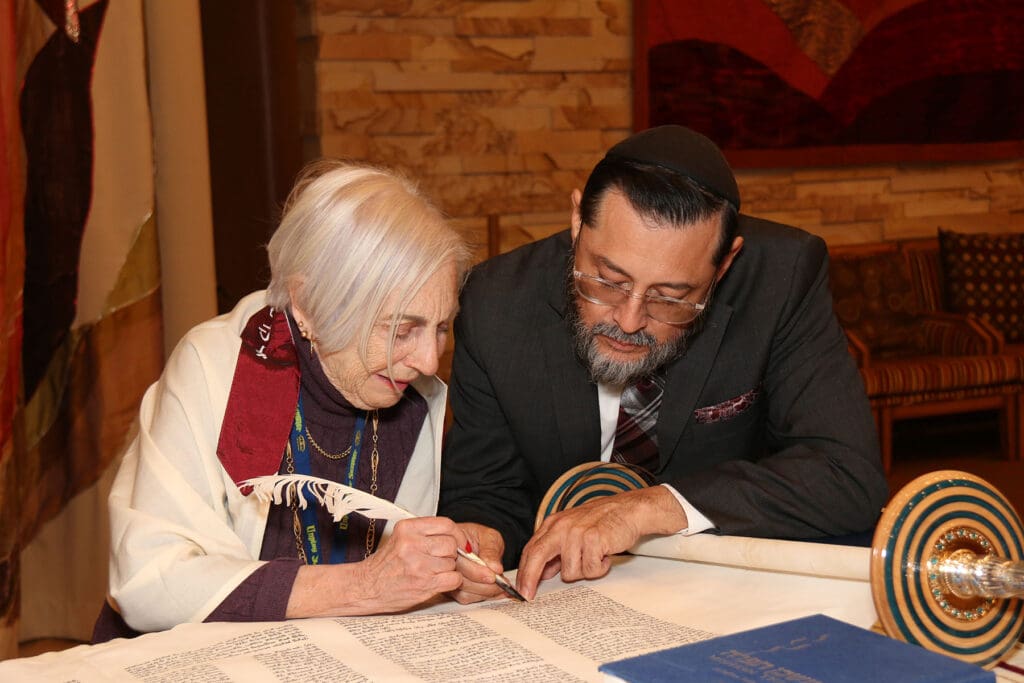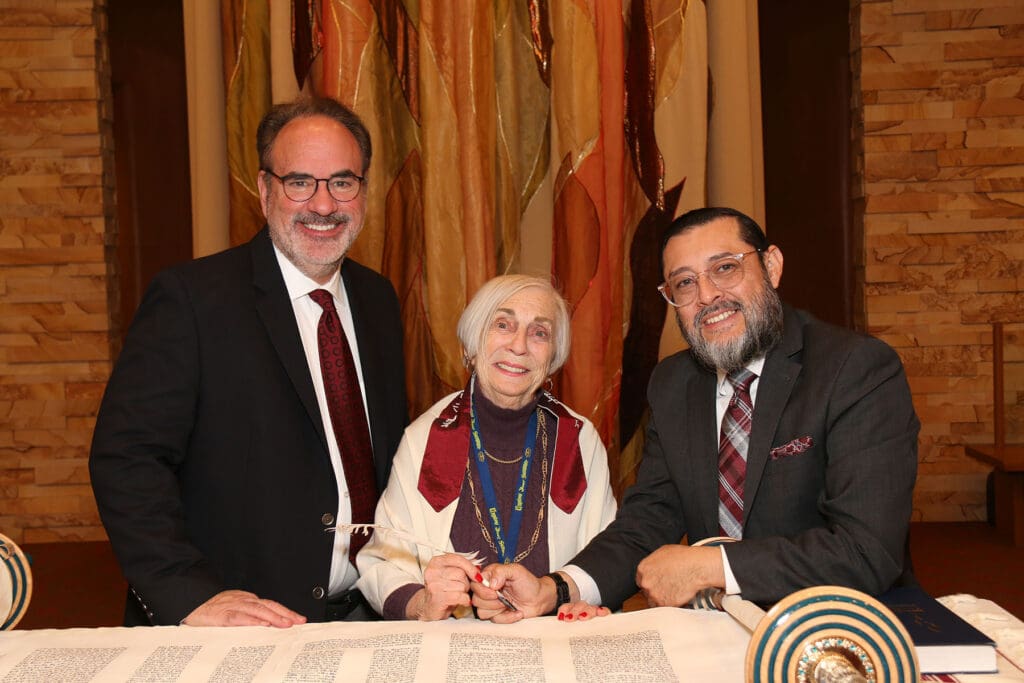

Helene Linden
In the portion of Shemot, the first portion in the book of Exodus, we read about Moses’ first experience of Divine revelation. The revelation was unique. Moses was tending the sheep of his father-in-law in the desert, when he saw a bush burning, yet the bush was not consumed.
In the book of Genesis, when G‑d spoke to Adam, Eve, Cain, Noah, Abraham, Hagar, Isaac, Rebekah, Laban and Jacob, G‑d spoke to them directly, without the need for an attention-grabbing scheme. Why did G‑d choose to reveal himself to Moses from a bush that was burning but was not consumed?
Moses experienced the Divine revelation, not for himself, but for the sake of the Jewish people, whom he would lead out of Egypt and to Mount Sinai—the very mountain on which Moses saw the burning bush—to become the nation of G‑d, a nation charged with the mission of making G‑d’s vision for this world a reality.
It follows, then, that the burning bush was not merely a way to grab Moses’ attention, but rather it was the symbolic mission statement of the nation that would be born at Sinai, immediately following the Exodus.
A blazing fire represents a soul surging upward, yearning to transcend the physical world and connect to spirituality. The annals of religious experience are full of people who have felt this burning passion in their hearts, and who chose to retreat from this world.
They chose to escape civilization, to flee to the forests and hills in an effort to escape the material. They fled the thorns of daily existence in order to bond with the spiritual.
The most important message of Judaism, and the first message that G‑d communicates to Moses is this: In order to connect to G‑d one must reveal the fire burning within the human heart.
To experience the Divine one must discover a longing to reconnect with the Divine source of all existence. The fire, however, must not consume the bush. One must not seek to escape the world, which sometimes feels like a thorn bush in a desolate place, unsuitable for spiritual growth. The consuming fire of G‑d cannot, paradoxically, consume us.
Even Moses, the greatest prophet of all time, the lawgiver, the one who spoke to G‑d “like a man speaks to his friend” could not allow himself to be consumed by the fire. We may not abandon the reality in which we live, or forget about the people around us. We must be like the flame surging upward, yet remaining grounded by its wick.
Moses was fascinated.
How could this be? How was it possible to maintain the fire? How was it possible to maintain the fire while living in a thorn bush? while living in a thorn bush? Moses said to himself: “Let me turn now and see this great spectacle: why does the thorn bush not burn up?"
G‑d responded to Moses’s wonder: “Take your shoes off your feet, because the place upon which you stand is holy soil."
G‑d told Moses that the physical realm, “the place upon which you stand,” is itself a creation of G‑d, which can be elevated to become sacred soil. Indeed, all of the earth can become as holy as Mount Sinai. G‑d revealed to Moses the mission statement and purpose of the nation that was about to be born: “Take your shoes off your feet,” we are instructed. Remove that which represents separation from the soil, and instead imbue the earth itself with holiness.
The purpose of creation, the reason the soul descends into this world, is to sanctify the material, to discover and to unveil the potential for any place on earth to hold a burning bush.
